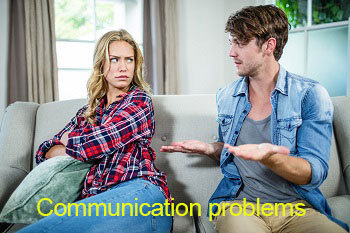Why do so many people get hung up and hurt about “poor communication”?

Poor communication paves the way to disconnection in relationships.
How often have you heard, “Oh my mum and I have never been able to communicate”? Or “My boyfriend and I get on great, but our communication is pretty shit.”
Animals and birds seem to communicate effectively, so what it is about us humans that makes communication so difficult?
Well, unlike animals and birds that communicate just for survival (“look out, the enemy is near” or “come over here and check out this food source!”) – we humans communicate for a number of other reasons:
- to ask (seek information)
- to tell (give information)
- to educate (to teach or preach information) or
- to share an experience (to connect).
In fact, human communication is more about connection and less about survival.
The purpose of the communication is often not the same
But already you will start to see that in any verbal exchange between people, the purpose of the communication is often not the same.
A teenager may want to SHARE an experience (eg “my teacher went crazy in class today”) and the parent will immediately ASK, “Why, what did you do?”
At which point the teenager gets defensive, and the moment of connection is lost.
Or a wife might want to SHARE an experience (eg. “John Jnr got really upset today at child care when one of other children kept taking his toy”) and the husband TELLS her, “I told you that child care center is no good and the staff are hopeless at watching what’s going on with the kids”.
Or he may even PREACH and suggest, “If you’re not happy with that place, why don’t you change him to a different child care center?”
Again, the moment of connection is lost. The wife wanted neither of those responses.
She has no intention of changing child care centers, having spent hours researching the one she believes is best for John Jnr. She simply wanted to share an experience with her husband about their son. In fact, she may perceive that it is a good thing that John Jnr now has to learn to share with other children – an important part of learning to socialise.
What the Sender SPEAKS and what the Receiver HEARS is often not the same
So often, the message that the Sender speaks is not the same as what the Receiver of the message hears. The words of the message are communicated, but the intention is not picked up clearly.
If people listened more intently, and paused before responding, they may be able to work out – or ask more – the reason the communicator “sent” the message.
In other words, why did the ‘sender’ of the message communicate? The ‘receiver’ of the message could then plan an appropriate response.
- It’s simple – if it’s sharing, then share back.
- If it’s asking, you can tell or teach… but in a normal voice, so you don’t sound patronising or condescending. (Tone of voice is everything – you’ll learn more later, why this is so.)
- If it’s educating, show gratitude for what you’ve learned – again in a normal voice.
NOW you can see the importance of communication. It’s not just about speaking. It’s about what you say and how you say it. It’s about what you hear and how you hear it.
In a relationship, you’ve got to get it right.
Remember, communication is about connection.

